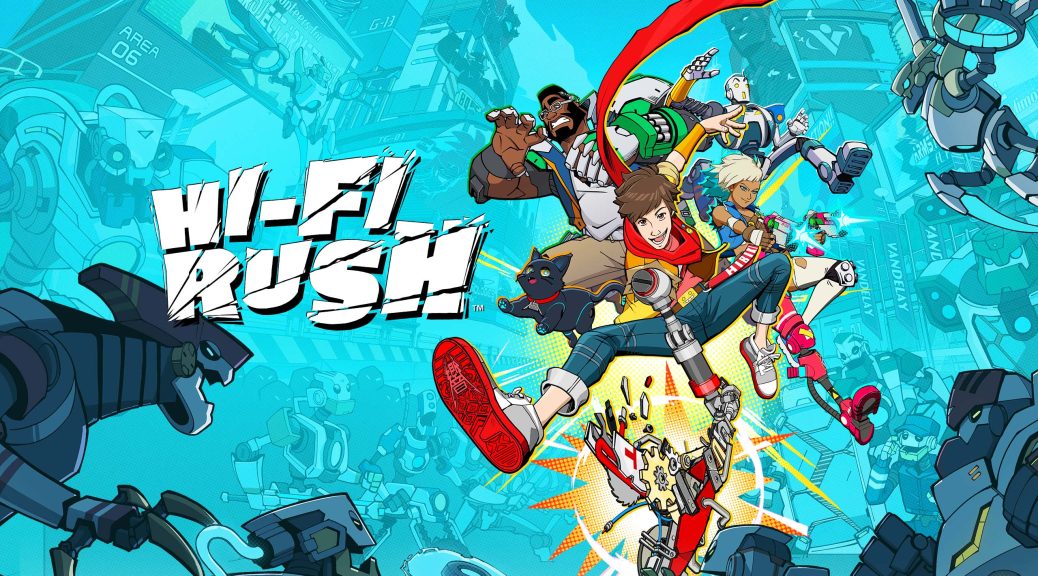
Hi-Fi Rush
Hi-Fi Rush feels like a PS2 game, and I don’t mean that as an insult. Its style of idiosyncratic presentation has all but disappeared from major releases as they’ve become entrenched and homogenized, and there’s a breezy, casually experimental attitude to it that peaked around that era. Most specifically, it feels like God Hand or Devil May Cry with a modern contribution from the burgeoning rhythm-action genre. All of the over-the-top gameplay of the former is synced to the beat of a great (albeit uniform-tempo) rock soundtrack, requiring players to match the rhythm if they want to survive and/or achieve a decent rank. The two components are a natural fit, both stabilizing and enhancing each other. I’ve never been particularly good at “character action” games, but the rhythm element gives a more intuitive access route to appreciating the mechanics.
This might be the only example of this genre that feels like you’re getting a full experience without putting in dozens of hours of practice. The combat doesn’t need to be overly technical unless you’re tackling one of the post-game challenges, which only unlock at the end of a story mode that’s perfectly gratifying on its own. There are two ways the gameplay falters, however. The first is that character action is a messy genre, so it can often be difficult to discern visual and audio cues from the enemies and interface. The second, more problematic one is that, whenever combat isn’t happening, the primary activity is limp rhythm-based platforming, which isn’t nearly as engaging or thoroughly-executed. Sometimes, these sections work as atmospheric or narrative downtime, but usually, they just feel hollow, particularly when the music remains excited even while nothing exciting is happening. It doesn’t help that they use DMC’s horizontally-challenged jumping controls.
Combat isn’t the only thing the game does well; you just need to venture outside of the gameplay to find the others. The animation has uncommon ambition and versatility, which, combined with terrific voice acting, makes the slapstick comedy of the cutscenes pop. The narrative premise is disarmingly absurd: the protagonist is trying to take down a mega-corporation after gaining music-based superpowers from an MP3 player accidentally grafted onto his heart during installation of a magnetic robot arm. But the unexpected adept writing leverages this, giving the cast of colourful characters genuine arcs and providing an amusing caricature of corporate culture, both of which hit harder when juxtaposed against the general silliness.